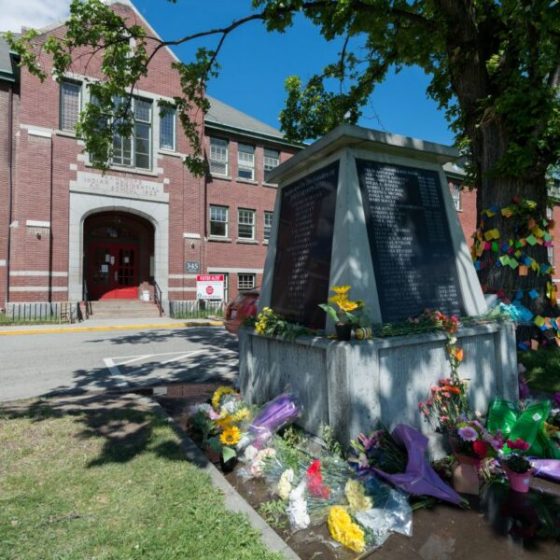
Canada’s recent discovery not only mentions the presence of other mass graves in the nation. It likewise sheds light on the global colonial legacy and how the military empire broadened through exploitation of indigenous lands.
The current discovery of an indigenous mass tomb in Canada bearing the remains of 215 children, is yet another reminder of colonial impunity. Kamloops Indian Residential School was the largest of lots of schools in Canada run by the government and the Catholic Church, which took part in the practice of separating indigenous kids from their neighborhoods and households, in a quote to take in the younger generations to the settler-mainstream society. Over 150,000 Native children were pushed into these schools; over 4,100 have been reported dead or missing. From poor nutrition, medical neglect, to sexual abuse, the criminal activities were covered up.
Canadian Prime Minister Justin Trudeau has actually come under criticism from indigenous leaders for stopping working to move beyond symbolic language of reconciliation. While the federal government pointed towards the Reality and Reconciliation report, Trudeau suggested that the lengthy research study process was partly due to the various partnerships and partnerships involved. “If it were only done by ministers, if it were only done by Ottawa, to resolve these difficulties, it might have been done long ago, however it would have been done incorrect,” he specified.
A thriving colonial political supremacy must have been blamed for the stalling, in addition to the Canadian government’s dependence on symbolic gestures as opposed to dedicated action to locate the missing out on indigenous kids. To simply state, in the wake of the mass tomb discovery, “We have actually dedicated as a government to be there for reconciliation, but also to be there for fact and that is an important step. So yes, we will exist to deal with neighborhoods on the things they require and on the things all of us require to know,” is not a sign of a federal government’s resolve to aid the procedure of Canada’s indigenous cumulative memory, not to mention develop fault and responsibility for the historic atrocities.
Between 2007 and 2015, the Canadian Reality and Reconciliation Commission launched a mission to collect testaments and accounts relating to the Residential Schools which targeted native kids. In the span of six years, the commission gathered historical accounts from over 6,500 witnesses, while the Canadian government provided over 5 million records to the Commission. In December 2015, the Commission presented its report, together with suggestions for the federal government to launch the reconciliation procedure. Prominent among the recommendations was the value of “constructive actions on attending to the ongoing traditions of manifest destiny.”
Yet Trudeau’s rhetoric suggested no recommendation to the colonial cultural genocide which developed control over native lands and individuals. The justification for the residential schools targeting native children was rooted in white supremacy. As Canada’s first Prime Minister John A Macdonald in 1883 declared, the policy was that children ought to be eliminated from their moms and dads and “the only way to do that would be to put them in main training industrial schools where they will obtain the practices and modes of thought of white males.”
Canada’s current discovery not only alludes to the presence of other mass graves in the nation. In addition, it also clarifies the worldwide colonial legacy and how the military empire broadened through settler-colonialism and exploitation of native lands– the latter hindered by the presence of the native.
While the UN Person Rights Office has called for an investigation into the deaths of native kids in Canada, it has avoided discussing the implications of colonialism. “Absence of extensive information and access to reality and redress for what occurred during this dark duration compounds this,” UN spokeswoman Marta Hurtado mentioned. At a global level, the organisation supposedly responsible for safeguarding human rights is still deeply entrenched in securing the historic colonial legacies, for this reason the refusal to politicise human rights, lest the struggle for collective memory, which prevails to all native individuals, damage the structure which has served the colonial powers so well until now.
The views of private contributors do not necessarily represent those of the Strategic Culture Foundation.

